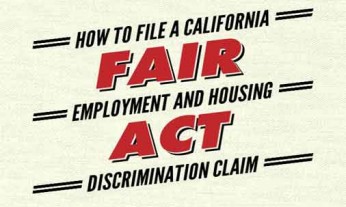 A Federal age discrimination lawsuit has been filed against the City of Milpitas. Why? Well, many employers make hiring decisions using a points system in which points are assigned to applicants based on their attributes, such as experience and education. Using a system like this can be helpful, not only when it comes to making the best decisions, but also in defending their hiring choices if there is an accusation of discrimination.
A Federal age discrimination lawsuit has been filed against the City of Milpitas. Why? Well, many employers make hiring decisions using a points system in which points are assigned to applicants based on their attributes, such as experience and education. Using a system like this can be helpful, not only when it comes to making the best decisions, but also in defending their hiring choices if there is an accusation of discrimination.
However, the use of such a system can present a major problem for an employer when a discrimination complaint is filed – if the applicant chosen wasn’t the one who received the most points.
Officials in the city of Milpitas, California – located between San Jose and Fremont – chose to hire a candidate for an administrative position even though four older candidates had higher scores. The city is now facing a federal age discrimination lawsuit filed by the Equal Employment Opportunity Commission (EEOC).
The Milpitas Age Discrimination Lawsuit
The lawsuit alleges that the city violated the Age Discrimination in Employment Act (ADEA) in 2013 when it hired Rachel Currie, who was then 39 years old, as executive secretary to the city manager. A review panel had ranked the applicants for the position according to a 100-point scale. The panel gave Currie a score of 82.33. Four other women who had applied for the position, who were between the ages of 42 and 58, had received higher scores. (According to the San Jose Mercury News, an additional applicant named Lori Casagrande was also turned down for the position, but she is not part of the EEOC’s lawsuit, as she is seeking a private lawsuit against the city.)
The ADEA is a federal law prohibiting age discrimination against employees who are 40 years of age or older. The EEOC found in 2014 that there was reasonable cause to believe that Casagrande and the four women named in the lawsuit were all victims of age discrimination in violation of the ADEA. After issuing the finding, an attempt at conciliation failed, with the parties unable to agree to a settlement, which led the EEOC to sue the city in the District Court for the Northern District of California.
The EEOC is seeking damages for the applicants, as well as injunctive relief seeking a change in the city’s hiring practices. According to William Tamayo, the Director of the EEOC’s San Francisco District, the front and back pay for the four defendants is about $200,000.
Avoiding the High Costs of Litigation
23% of the claims filed with the EEOC in 2014 were age discrimination complaints. The costs of defending these suits can be tremendous, and yet many businesses do not have policies in place to deal with the issue of age discrimination. [Read more…]



